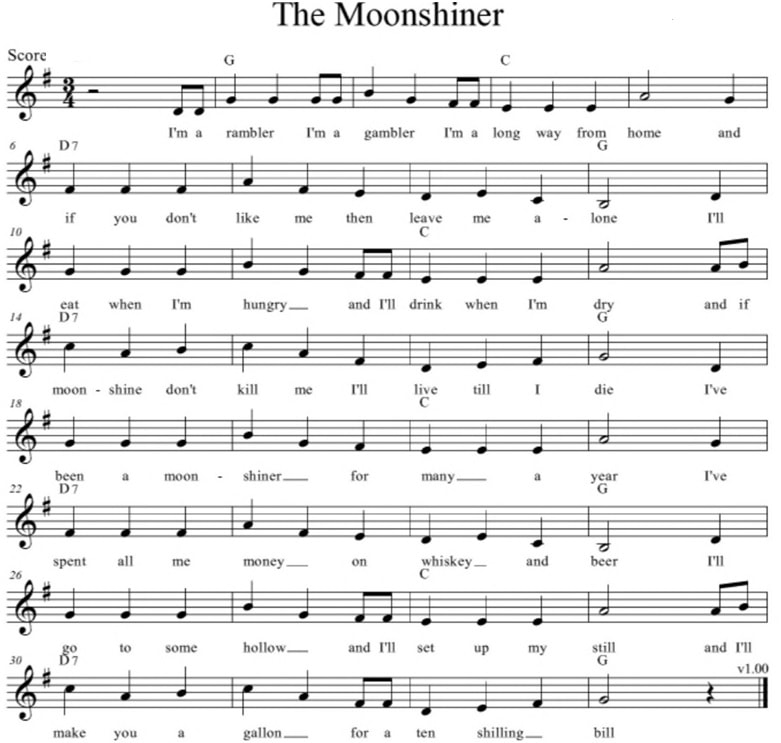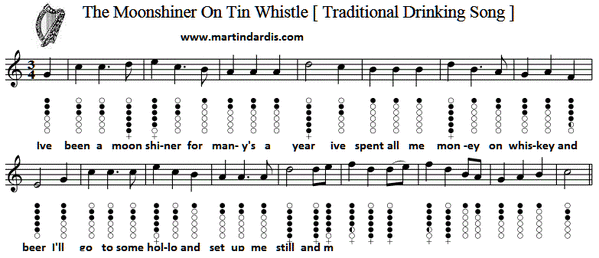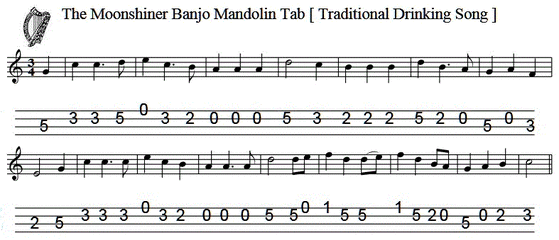The Moonshiner Sheet Music For Tin Whistle
''I'm A Rambler I'm A Gambler Sheet Music '' .And Banjo / Mandolin. The lyrics and chords are in the first version. First recorded by Delia Murphy in Ireland back in the 1930's. The Clancy's also sang it. It's hard to know where it actually comes from although the Clancy's said it was Irish. I doubt very much if it's origins are Irish simply because of it's title. The words ''Moonshine'' is never used in Ireland, instead we call the making of the illegal drink ''Poteen'' . I'll take a guess and call this song American



